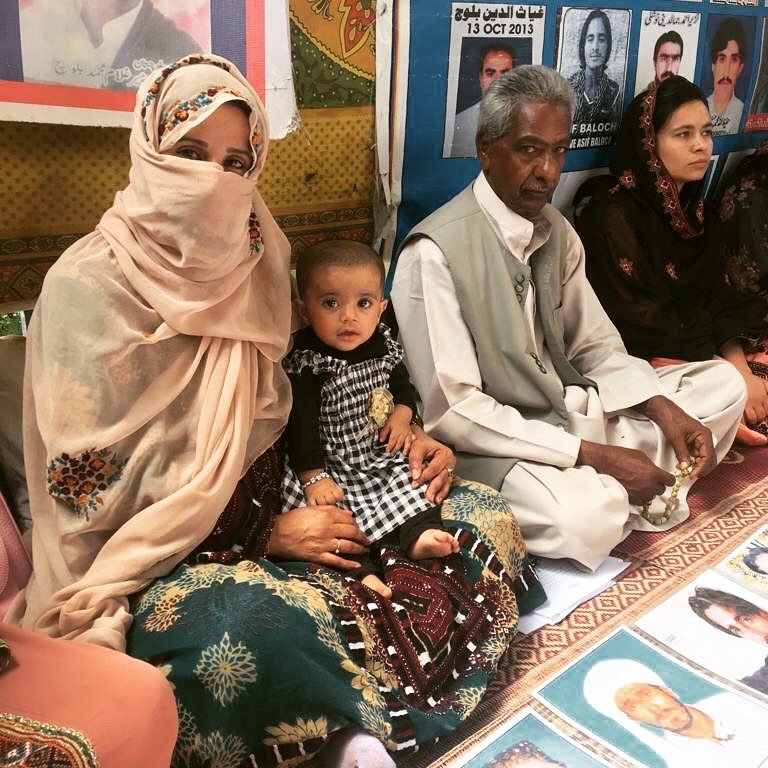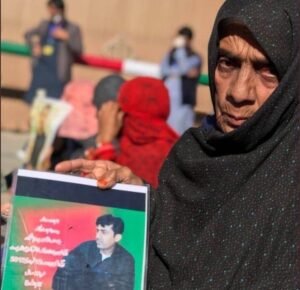Balochistan’s Seven Months of Freedom, Decades of Resistance

Relatives of Baloch missing persons continue their search for truth and accountability. Photo: Human Rights Council of Balochistan
By Kadeem Baloch
In an interview with the Afghan Diaspora Network, exiled Baloch human rights activist Abdullah Abbas recalls his homeland’s brief independence in 1947 and explains why the struggle for self-determination continues more than seven decades later.
When the British Empire withdrew from the Indian subcontinent in 1947, Balochistan briefly stood as a free nation. It declared independence on August 11—four days before Pakistan and India were born.
For seven months, the Baloch people governed themselves, until March 1948, when Pakistan’s army, backed by the British, annexed the territory. “Balochistan was a free country for seven months,” says Abbas.
“Then it was occupied against the will of its people—and ever since, we have lived under a system of exploitation and repression.”
From that moment, Abbas says, Balochistan was treated not as an equal province but as a colony.
Despite its vast natural wealth—especially the gas fields in the Bugti region—its people remain among the poorest in Pakistan.
“The gas discovered in the 1950s has fueled Pakistan’s industries for decades, but most Baloch villages still rely on firewood for cooking,” he notes. “Our land’s resources power the rest of the country, but we have no share in them.”
The sense of injustice deepened over the decades, culminating in the killing of veteran tribal leader Nawab Akbar Khan Bugti in 2006. A prominent nationalist figure and former governor of Balochistan, Bugti was widely respected for advocating the province’s rights within Pakistan’s federation.
Bugti demand for a fair share of control over Balochistan’s gas reserves led to military clashes and his eventual assassination.
“His body was locked in a coffin and buried without his family,” Abbas recalls. “That act alone ignited a new wave of anger and resistance among our people.”
Since then, Pakistan’s security forces have waged extensive operations in the region. Human rights groups have documented thousands of cases of arbitrary arrests, enforced disappearances, and extrajudicial killings. Activists, journalists, and students have all been targeted, creating an atmosphere of fear and silencing dissent across the province.
Despite years of repression, Abbas believes the struggle for self-determination continues to define the Baloch national movement. For many, the demand is not driven by separatism but by the desire for dignity, justice, and autonomy.
The Baloch people see their cause as part of a broader, universal right recognized under international law—the right of a nation to determine its own political destiny. Their struggle, sustained through generations, remains a testament to their resilience and unyielding hope for a future shaped by their own will.
The author chooses a pseudonym. Kadeem Baloch is a freelance journalist based in Pakistan.
Note: The contents of the article are of sole responsibility of the author. Afghan Diaspora Network will not be responsible for any inaccurate or incorrect statement in the articles.










